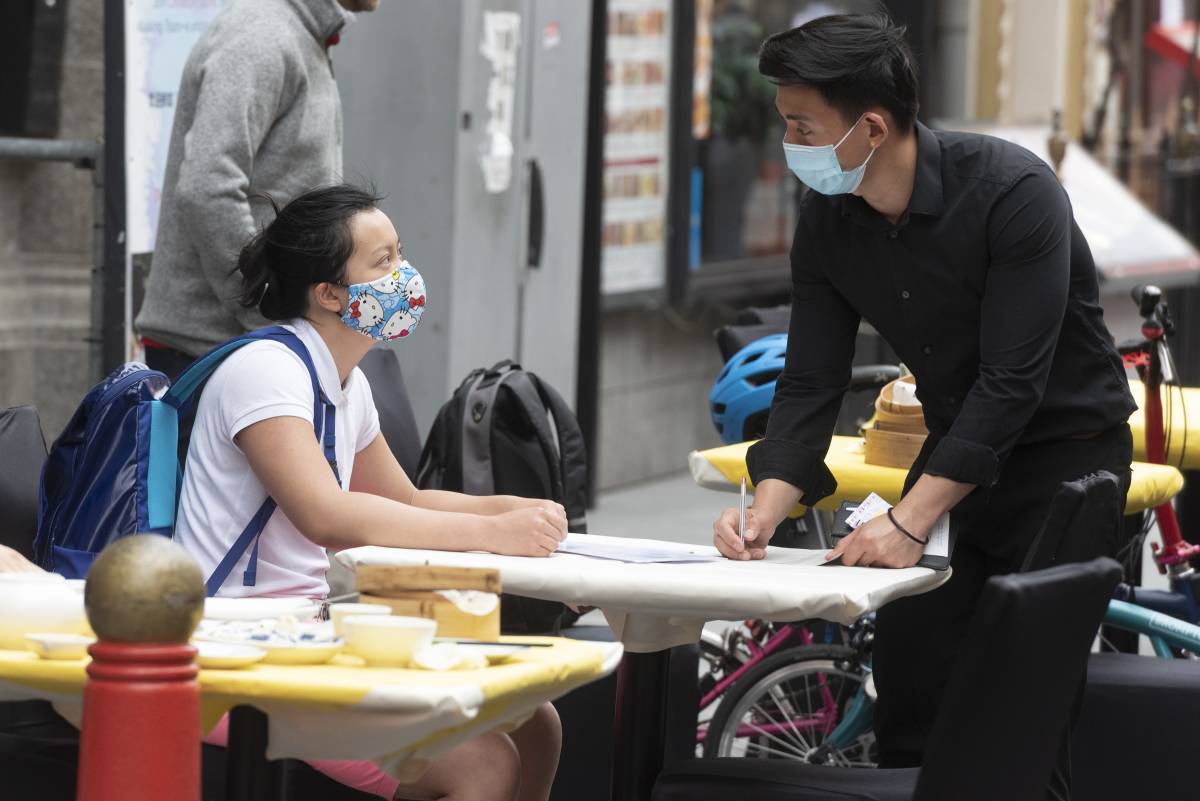“Migration – a key source of worker shortages through the pandemic – is showing some signs of bouncing back,” said James Smith, an economist at ING…reports Asian Lite News
Britain recorded its biggest rise in foreign workers since the start of the COVID-19 pandemic in the year to June, driven overwhelmingly by workers from outside the European Union, official figures showed on Tuesday.
Since January 2021, most EU citizens not already working in Britain must be sponsored by an employer and be paid a salary that does not significantly undercut existing wages, after losing their previous almost-unrestricted right to work.
The post-Brexit change puts EU migrants on the same footing as those from the rest of the world, but has drawn complaints from employers who find the process bureaucratic, and a non-starter for most jobs that pay less than 25,600 pounds ($30,760) a year. read more
Tuesday’s Office for National Statistics data showed the number of foreign-born workers in Britain rose by 223,000 in the year to the end of June, up from an increase of 184,000 in the year to March and the biggest rise since early 2020.
“Migration – a key source of worker shortages through the pandemic – is showing some signs of bouncing back,” said James Smith, an economist at ING.
The data may be welcomed by the Bank of England which is worried that a shortage of candidates to fill jobs could push up wages too quickly and aggravate the recent jump in inflation.
Samuel Tombs, at Pantheon Macroeconomics, said migration was likely to rise further as the salary thresholds for sponsoring work visas had not been raised in line with average wages, which are 5.1% higher than a year ago.
The latest figures confirm a big shift in migration patterns compared with before Brexit.
Non-EU workers increased by 189,000 while the number of EU workers rose by 34,000 over the past year.
Previous government data showed India, Nigeria and the Philippines were the countries whose nationals received the most skilled work visas in the year to March.
By contrast, more than a million EU workers moved to Britain between the 2008-09 financial crisis and June 2016’s Brexit referendum, since when the number of EU-born workers in employment has broadly stabilised at slightly under 2.4 million.
The number of non-EU workers employed in Britain has risen to 3.9 million from 3.1 million in the six years since June 2016.
Indonesian workers ‘at risk of debt bondage’
Indonesian labourers picking berries on a farm that supplies Marks & Spencer, Waitrose, Sainsbury’s and Tesco say they have been saddled with debts of up to £5,000 by unlicensed foreign brokers to work in Britain for a single season.
Pickers at the farm in Kent were initially given zero-hours contracts, and at least one was paid less than £300 a week after the cost of using a caravan was deducted, according to payslips and other documents seen as part of a Guardian investigation.
The fees they pay to secure work include flights and visas, but multiple labourers said they also faced thousands of pounds in extra charges from Indonesian brokers who promised substantial earnings. Under UK employment law, it is illegal to charge workers fees for finding them jobs.
One worker described how he staked his family home in Bali as surety on the debt and fears losing it. “Now I’m working hard only to pay back that money,” he said. “I cannot sleep sometimes. I have a family who need my support to eat and meanwhile, I think about the debt.”
Brexit and the war in Ukraine have created chronic labour shortages in the UK agricultural sector, pushing desperate farms and recruitment agencies to look further afield than Europe, where it can be harder to track the methods local brokers use to find workers.
The revelations raise the prospect of fruit pickers being trapped in debt bondage, preventing them from leaving work without risking financial ruin. Migrant rights experts say the situation puts workers at risk of what is essentially forced labour.
The Home Office and the Gangmasters and Labour Abuse Authority (GLAA) are looking into the allegations, and the supermarkets have launched an urgent investigation into the issues raised by the Guardian.
Hundreds of Indonesian farm workers have been recruited to work in Britain this summer on seasonal worker visas, the immigration route created to tackle a shortage of farm workers after Brexit.
Scores of pickers were sent to Clock House farm near Maidstone in Kent, which supplies berries to most major supermarkets and has appeared in an M&S advert.
Clock House said it was “deeply concerned” by the allegations and would “not have entered into an agreement with, or taken workers from, any entity that was involved in such activity [the charging of fees]”. It said it was working with the authorities to investigate the claims.
The Indonesian workers were supplied by AG Recruitment, one of four UK agencies licensed to recruit using seasonal worker visas. AG denied any wrongdoing and said it knew nothing about Indonesian brokers charging money.

